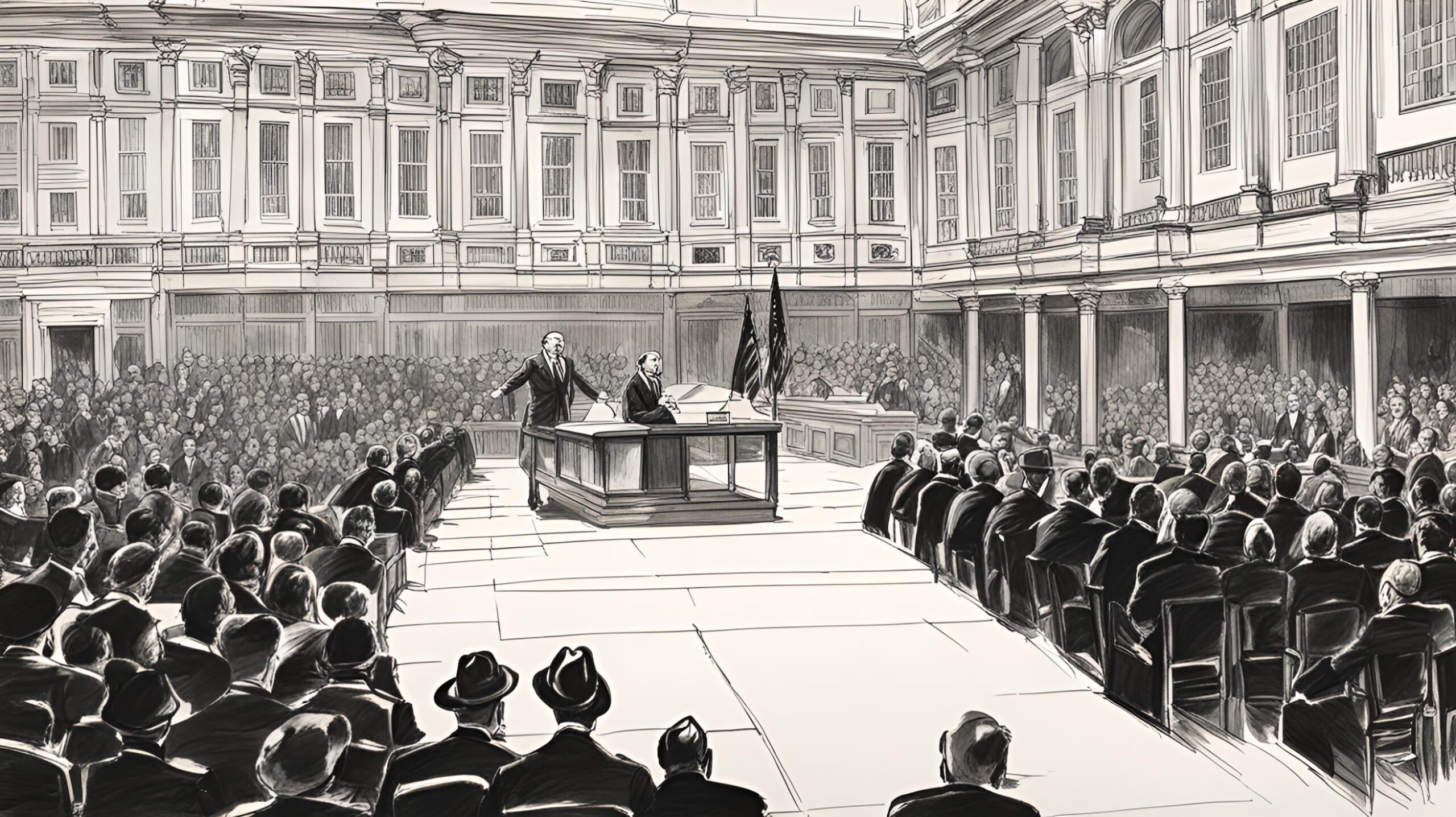Flashback to September 28
American History

1947
Marshall Plan: At a speech at Harvard University, United States Secretary of State George Marshall calls for economic aid to war-torn Europe
Read moreOn June 5, 1947, a pivotal event took place. United States Secretary of State George Marshall delivered a speech at Harvard University, proposing what would later be known as the Marshall Plan. This plan called for economic aid to war-torn Europe, aiming to rebuild nations devastated by World War II. This speech marked a turning point in history, as it laid the foundation for a major initiative that would have a profound impact on Europe’s recovery and the shaping of the Western world.
In his speech, Secretary Marshall emphasized the urgent need to address the economic challenges faced by Europe after the war. He described the bleak situation, highlighting the vast destruction of infrastructure, the lack of food and shelter, and the escalating political and social unrest. It was clear that immediate action was required to prevent further destabilization and to support Europe’s recovery.
The main objective of the Marshall Plan was to provide aid and assistance to European countries, helping them rebuild their economies and foster stability. The United States committed to providing financial support, resources, and expertise to help Europe recover. This support was not only driven by humanitarian reasons but also by strategic considerations. It was believed that a prosperous and stable Europe would prevent the spread of communism and strengthen the Western world against the Soviet Union’s growing influence.
The Marshall Plan was not only about providing financial aid but also focused on fostering cooperation among European countries. It encouraged the nations to work together and develop a unified approach to their economic recovery efforts. This collaboration would help create a more interdependent Europe, where nations could collectively address shared challenges and promote sustainable growth.
Implementing the Marshall Plan required significant coordination and organization. The European countries that wished to participate had to develop comprehensive recovery plans, highlighting their needs and proposed strategies for rebuilding. These plans were then reviewed by the United States, which assessed the feasibility and effectiveness of the proposed projects. Once approved, financial aid was provided to support the implementation of these recovery plans.
The impact of the Marshall Plan was far-reaching. The aid provided by the United States played a crucial role in rebuilding Europe’s economies, fostering growth, and improving living conditions. By 1952, the participating countries had experienced impressive economic recoveries, with industrial production surpassing pre-war levels in many cases.
Moreover, the Marshall Plan contributed to the creation of a stronger, more integrated Europe. The focus on regional cooperation laid the groundwork for the establishment of the European Coal and Steel Community in 1951, which later evolved into the European Union. This integration has been essential in maintaining peace, promoting economic prosperity, and enhancing political stability in Europe.
The Marshall Plan also served as a significant demonstration of the United States’ commitment to global leadership and a proactive approach to foreign affairs. It highlighted the nation’s willingness to engage with the world and help shape its future, promoting economic growth and stability as a means to prevent conflicts and foster collaboration.
The speech delivered by Secretary of State George Marshall at Harvard University on June 5, 1947, marked a turning point in history. The proposal for the Marshall Plan laid the foundation for an ambitious initiative that brought economic aid to war-torn Europe, facilitating its recovery and shaping the Western world. This plan not only provided financial support but also fostered cooperation among European nations, creating a more integrated and prosperous Europe. The impact of the Marshall Plan on Europe’s post-war recovery, the establishment of the European Union, and the global perception of the United States as a leader cannot be underestimated. It remains an important milestone in history, reminding us of the power of international cooperation, solidarity, and visionary thinking in times of crisis.
We strive for accuracy. If you see something that doesn't look right, click here to contact us!
Sponsored Content

NASA launches Intelsat VA
Experience the monumental occasion…

American politician Tom DeLay…
"American politician, Tom DeLay,…

Opelousas Massacre at Saint…
Experience the shocking history…

